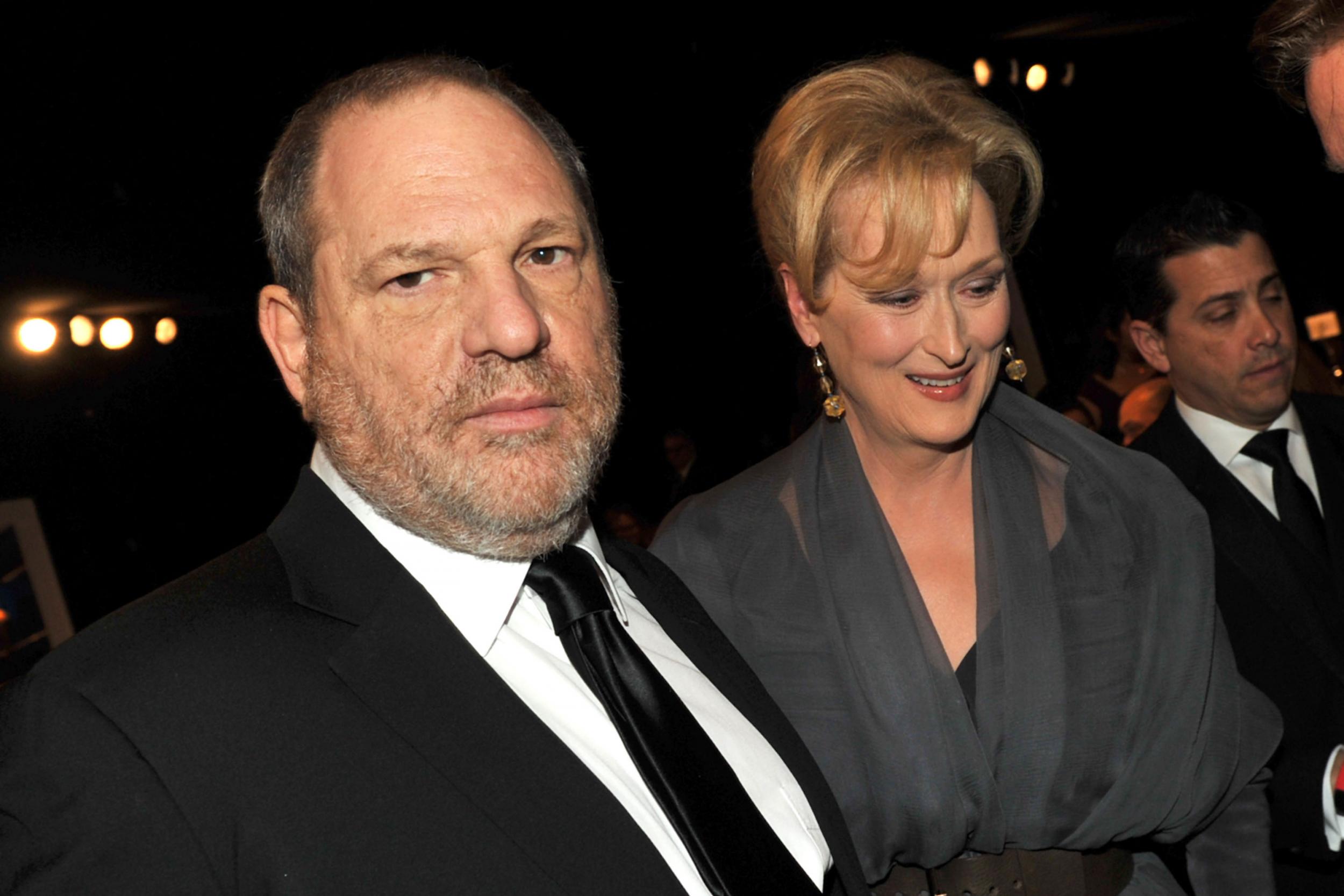Hollywood can make it up to the actresses Harvey Weinstein may have smeared
It's great that the entertainment industry is finally acknowledging the pain that so many women in the business have suffered. But now actresses need to be recompensed, says Alyssa Rosenberg

Your support helps us to tell the story
From reproductive rights to climate change to Big Tech, The Independent is on the ground when the story is developing. Whether it's investigating the financials of Elon Musk's pro-Trump PAC or producing our latest documentary, 'The A Word', which shines a light on the American women fighting for reproductive rights, we know how important it is to parse out the facts from the messaging.
At such a critical moment in US history, we need reporters on the ground. Your donation allows us to keep sending journalists to speak to both sides of the story.
The Independent is trusted by Americans across the entire political spectrum. And unlike many other quality news outlets, we choose not to lock Americans out of our reporting and analysis with paywalls. We believe quality journalism should be available to everyone, paid for by those who can afford it.
Your support makes all the difference.In a conversation with the New Zealand website Stuff, director Peter Jackson said that he had passed on casting actresses Ashley Judd and Mira Sorvino in his blockbuster Lord of the Rings movies because Harvey and Bob Weinstein had criticised them.
“I recall Miramax telling us they were a nightmare to work with and we should avoid them at all costs. This was probably in 1998,” Jackson said. “At the time, we had no reason to question what these guys were telling us – but in hindsight, I realise that this was very likely the Miramax smear campaign in full swing. I now suspect we were fed false information about both of these talented women – and as a direct result their names were removed from our casting list.”

Jackson’s admission is heartbreaking, and his candour is welcome; it would be an excellent thing if he kickstarted a conversation about the way directors, however unknowingly, may have helped Harvey Weinstein retaliate against the actresses (such as Judd and Sorvino) who would later come forward to accuse him of sexual harassment and, in some cases, sexual assault. This long-overdue self-analysis could play a critical role in making clear an important point: that while Harvey Weinstein alone is responsible for allegedly harassing his victims, he couldn’t have punished and intimidated them in the same way if Hollywood worked differently.
Jackson’s reflection also suggests how the fight against sexual harassment could dovetail with the ongoing fight to create more and richer parts for women in the overwhelmingly male movie industry.
As research from think tank the Annenberg Inclusion Initiative has long demonstrated, women are dramatically underrepresented in Hollywood, hovering between 28 per cent and 33 per cent of speaking characters in the most popular films released over the past decade. The movies also rarely depict older characters, and those who do make it on screen are even more overwhelmingly male.

The practical results of these numbers are obvious: Women are already competing for a smaller number of available roles than men are. And the window in which they can compete for those roles is narrower.
These already-harsh professional realities gave men like Weinstein a powerful weapon. If Weinstein could paint a woman as difficult for a few crucial years of her career, pushing her out of a major role in a franchise such as The Lord of the Rings, he could effectively derail her career entirely. By the time the rumours that were spread about an actress had faded, she might be perceived as too old for the available parts. And in the meantime, the rumours would have cost her the money and exposure that come with landing a significant part.
Directors like Jackson and the industry as a whole can’t make up for all of those wrongs, of course. (Amazon, whose chief executive, Jeff Bezos, also owns The Washington Post, could always cast Sorvino or Judd in its planned Lord of the Rings TV show.) Those casting decisions are over, and those years of those actresses’ lives and careers are gone.
But what the entertainment business could do is use this moment to start revisiting what kinds of movies it green-lights, and to think about how it wants to use the talents it wasted for so long. One immediate step would be to start green-lighting movies about heroines that actresses such as Judd, Sorvino and others are now old enough to play: substantive women in their forties, fifties and sixties.
Right now, the latter are mostly played by Meryl Streep, and the former have largely migrated to television, but it doesn’t have to be that way. Neither do these movies have to be wildly expensive extravaganzas. The point isn’t to recreate the experience of starring in The Lord of the Rings, but for someone like Sorvino to feel as though even if years of her career were stolen, she still has more to come.

Some of these women could even be tapped to direct and produce these movies: Weinstein may have tried to undermine Salma Hayek while she and Julie Taymor were making Frida, as Hayek wrote in a wrenching account for The New York Times. But if Hayek and Taymor could pull off a movie even under those conditions, I’d like to see what Hayek in particular could do with an executive who actually supported her.
It’s wonderful that the entertainment industry is finally acknowledging the pain that so many women in the business have been suffering for so many years. But acknowledgement is only a first step. Real recompense involves making the women whole after what they have lost.
It shouldn’t have taken the catastrophic revelation of Harvey Weinstein’s true self to make Hollywood a more equal place, and one that actually made good use of the talents available to the industry. But if the scalding shame that Hollywood’s power players claim to feel finally forces them to tell a wider range of women’s stories, it’ll be better late than never.
© The Washington Post
Join our commenting forum
Join thought-provoking conversations, follow other Independent readers and see their replies
Comments